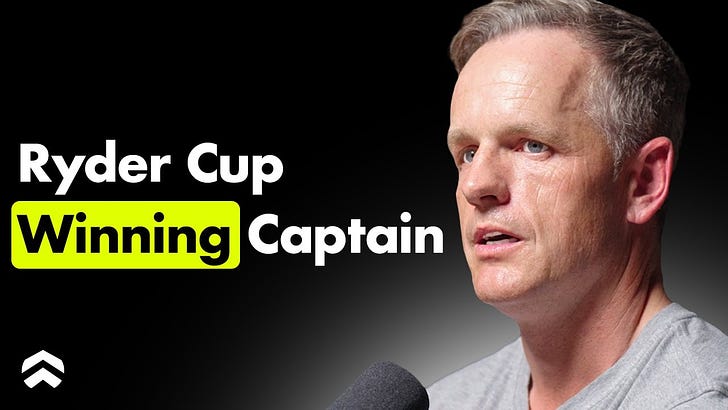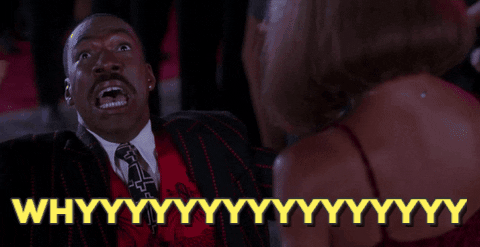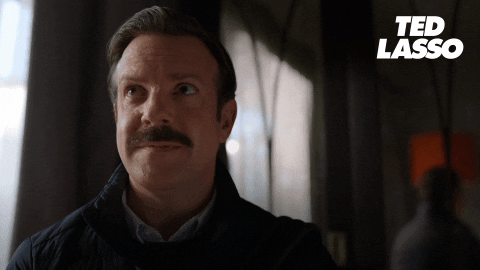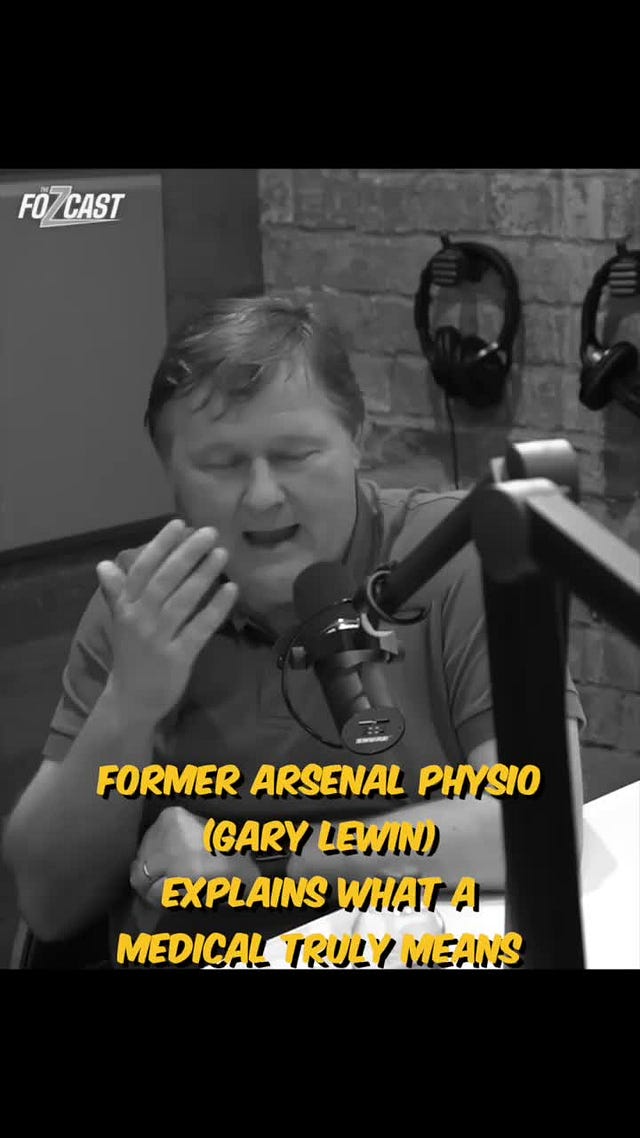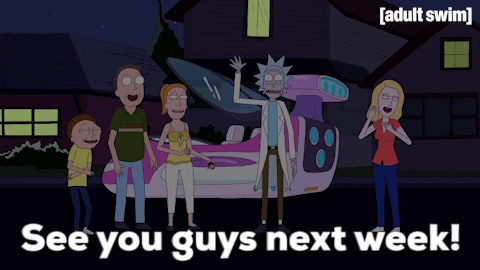The Jake Humphrey Problem; Why we're obsessed with leadership; The Good and Bad Captain; The Premier League's Squeezed Middle; The book, the pub and the Amazon five star rating system; Georgie's shirt
Overthinking the sports business, for money
This podcast is sponsored by Leaders Week London.
Who could you be joining at Twickenham Stadium on October 18th and 19th?
Across the Summit, over 1,800 of the most senior figures in the sport business will be there, from Amazon to the Premier League, adidas to Spotify.
This is your opportunity to meet and rub-shoulders with executives from across the sport business ecosystem, to reconnect with old friends and reminisce about your past experiences from Leaders Weeks gone by.
And as a reader of Unofficial Partner, you can get take advantage of a 15% discount on your Summit passes - just use UP15 at the point of purchase.
Visit leadersinsport.com/UP for more information.
The Leadership Factory
It’s Ryder Cup week.
In 2016 I wrote a book about it.
And every two years it gets a bump.
The book uses the job of the Ryder Cup captain to talk about leadership.
More precisely, it’s about us: why we’re obsessed with sporting leaders and the stories we tell about them.
These stories are like weeds, almost impossible to kill.
In this way they share the characteristics of myth.
There are two basic stories - The Good Captain and The Bad Captain.
These roles are allocated entirely on the basis of who wins and who loses.
Once the result is known we go in search of supporting evidence - ‘he’s data led’, ‘an inspirational character’, ‘quiet tactician’ - a mix of attribution error and biography.
And the Good Captain story deepens over time.
A halo is placed around the person and by extension the decisions that they made - Generating momentum, Course setup, Wildcard picks, Pods etc.
These stories get passed on from event to event, solidifying in to received wisdoms.
We do this because we want easy answers.
The Good Captain story makes sense; It feels true. It has a start, a middle and an end.
By elevating the role of the two captains, we’re able to condense three days of high quality and complex sporting competition in to something that answers the basic questions of journalism.
The first four of these are pretty straightforward, requiring factual answers: Who, What, Where, When?
But in the internet age, those four Ws are not enough.
Today’s journalist must answer another question - Why?
This is where the fun starts.
Why did Europe win the Ryder Cup?
That’s a tough one, with a long list of complicated answers that might include the relative abilities of the two sets of players, their form or confidence on a particular day, their collective knowledge of the course and the conditions, and of course luck, that most underrated of sporting qualities.
Why did Leicester City win the Premier League?
Why did Apple make 18billion dollars of profit over the last three months?
Why have I lost my job?
These are complex questions that resist simple, headline based answers.
They’re stories that are neither easy to write or satisfying to read because cause and effect are not obviously aligned.
Real life is seldom narrative shaped.
But there’s a way to solve this problem, which is to elevate the role of the leader above all the other possible explanations for success and failure.
Faced with the job of explaining sports results - or share price fluctuations and economic volatility - we focus on the actions, decisions and behaviour of the person in charge when winning happens.
This takes a difficult, messy reality and renders it simple.
The Jake Humphrey Problem
Given my above argument, I’m not a big fan of leadership podcasts.
The Good Captain is anointed in to the leadership industry, valued elsewhere at $50billion* (*the number’s always wrong).
There are TED talks, Sky Sports commentary gigs, ‘How I won’ book deals and then, one afternoon, you find yourself locked in a room with Jake Humphrey - see below.
People often assume I’m ‘anti leadership’, or think that it doesn’t exist or matter.
This is not true, but a fair question given I called my book The Captain Myth.
Leadership is real. We all know this to be true. We see it every day and if we’re lucky we see it from the ones in charge.
People have the ability to affect change in organisations. Leaders can impact team performance.
But the leadership industry is extraordinarily lazy, and riddled with attribution error.
It starts with the question of ‘who won?’ and works back from there.
We’re in the era of the super coach, and it’s unhealthy.
Take a moment to read any paper, listen to any news story.
Everything is viewed through the filter of leadership.
The most famous people in sport don’t play, they prowl the sidelines in expensive suits, gesticulating wildly and performing the role of leader in front of the crowd.
I love this bit from Barney Ronay’s book, The Manager: The Absurd Ascent of the Most Important Man in Football:
“Giddy with his own subscription era celebrity, the manager developed a range of new gestures. He had his teeth done. He adopted the quasi military costume of the US sports coach, the executive shell suit and advanced communication earpiece. And he stood up. Lured from the dugout by the glare of his new stage, the manager - for so long a hunched and furtive creature - took to his hind legs and walked.”
This gets to the conclusion:
To most people a football manager is what a leader looks and sounds like: he’s white, male and autocratic, with a monopoly on the higher skills of creativity and decision making.
Players are mere passive recipients of instruction, pawns on a chess board, data points on a laptop, moved around the pitch by an all seeing god like figure in the dugout.
The leadership industry encourages sports fans, and shareholders and voters, to demand more than traditional management qualities of diligence, hard work and excellence… they want charisma, stardust and hope.
This obsession with leadership has led to a paradox.
The financial rewards for being one are huge, despite the fact that the public’s trust in our leaders has never been lower.
Hear also - me talking about this on Radio 4’s Four Thought. The headshot is of a man whose face I’d never tire of punching.
Have I ever told you the one about my book, the pub and the Amazon ratings system.
True story.
It was in the run up to Christmas 2016.
The Captain Myth had just gone out.
It was a Sunday afternoon and I’d been invited to a small do in the local pub, The Good Companions in Brighton, just off Seven Dials.
We got there about 3ish but the pub didn’t have any food left.
Which was a downer for a Christmas dinner.
The staff offered crisps, and gave off a general vibe not giving a toss. There was smirking.
So, annoying.
I never leave reviews, but was really cross, mainly on the part of the people who’d organised it, so went home and left a one star review on the local Facebook page.
Didn’t think much more about it.
Then I started getting alerts on my phone. Loads of them.
A pile of one star Amazon reviews for The Captain Myth, one after the other.
Different user names, all around the same time that afternoon, about twenty reviews in one go.
Obviously a concerted retaliation from the people at the pub.
The nature of the reviews was offensive.
Madeline McCann was referenced.
I was described as a well known Nazi.
That sort of thing.
Following day (Monday) I got hold of someone at Bloomsbury, the book’s publisher, who complained to Amazon.
But Amazon weren’t that interested, peddling some sort of free speech schtick and said I should be happy, because the activity being generated will be favoured by the algorithm; most books don’t get a single review etc.
When pushed they said they’d only take the really offensive - and libellous - reviews down.
So worst of both worlds.
I was left with a load of seemingly normal one star reviews, rather than obviously unhinged ones.
I wrote about this on Twitter and some nice people then jumped on Amazon to post five star reviews, making up comments about how good the book is.
And that’s pretty much where it’s been ever since.
The book levels out as a three and a half stars, with all the connotations that come with such a rating.
And I’d estimate about 10% of the reviewers have read the book.
The wisdom of crowds in action.
The Sports Business in 100 Objects - George Best’s shirt
Another book idea, one that didn’t go anywhere: White Gold, a biography of the England football shirt.
I'd tell the story of English football through the lens of the national team jersey.
One thought was to track down the 1966 team shirts worn by the World Cup winning England team.
This leads to another story: Bobby Moore’s shirt is missing.
And there’s a cottage industry devoted to finding it.
This got me to Sothebys on a Tuesday morning, ‘on the trail’ etc etc, add dramatic music here.
(Having written it down, I’m sold on the idea again. This time it sounds like a podcast series….Matt Cutler, what do you think?)
Anyway, I was reminded of the above caper by an email from the wonderful Graham Budd Auctions.
George Best’s shirt has come to market.
Along with a whole cache of Man Utd artefacts.
Want to buy it?
You’ll need to be quick, the auction is today….
(I’m not on commission btw, just in case you’re wondering).
The Squeezed Middle of the Premier League
The third in our series on sport’s commercial middle ground, in collaboration with PTI Digital.
This week, myself and Ben Wells welcome Charlie Boss, CCO of Southampton FC to the pod.
The Premier League has a caste system, based on money.
Every year twenty clubs get a share of the Premier League TV money.
A small ‘elite’ group gets access to the UEFA media revenue.
Then there’s the rest.
Let’s call them the squeezed middle, for whom life is harder, struggling to perform on the pitch on reduced budgets, while fighting off the cataclysmic economic shock that is relegation to the Championship.
Club revenues hover around the £150-200million mark.
Most of that comes from media money.
The rest from tickets, sponsorship, merch etc - the basic inventory of every club’s commercial team.
There are incremental tweaks and nudges that can be applied.
A cut to free fan away day coach fares here, a price rise on beer there.
(See how that’s gone down at Chelsea btw…From The Athletic this week: Chelsea and the ‘penny pinching’ measures exposing tensions with their legacy support)
Club owners want to see a revenue graph that goes sharply up and to the right.
But how?
One bit of the jigsaw is player transfer money.
Brighton’s model.
Locate a cheap defensive midfielder and sell for a £100million.
How sustainable is that as a business strategy?
I guess we’ll see.
Meanwhile, this clip is a great story from Gary Lewin, Arsenal, West Ham and England’s long time physio.
It combines data, insight, medical science and salesmanship.
Spoiler: Arsene Wenger is not a stupid man.
Till next time.
Unless of course, you’re joining us for tonight’s Unofficial Partner Convergence Brainstorm at the top of the Orbit at Queen Elizabeth Olympic Park.
If that’s you, we’ll see you there.

